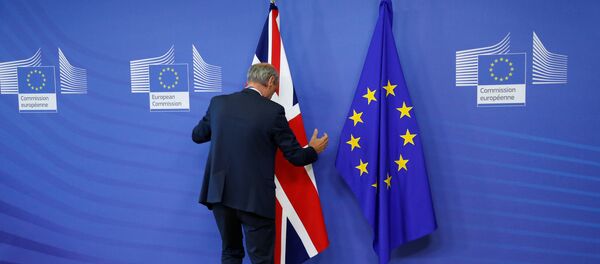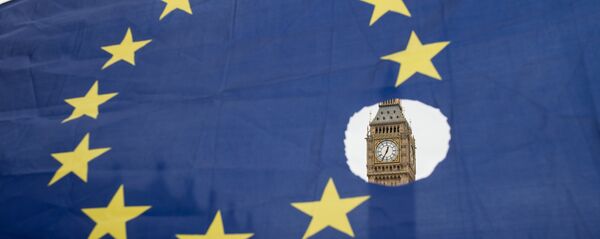Kristian Rouz – Foreign trade realignment from the focus on EU market to the broader international markets is poised to bring significant economic benefits to the UK, a recent study argues. Whilst an unlikely probability, a ‘hard Brexit’ would allow the UK to deepen trade ties with less competitive nations outside of Europe, thus taking advantage of their markets.
The UK, being part of the European Customs Tariffs at this point, taxes its imports from non-EU nations quite highly, whilst competing with other EU economies in a non-border-tax environment. Eliminating such tariffs, either through free-trade deals, or unilaterally, after exiting the European Customs Union, would bring a significant boost to the UK’s consumer market, and it would also decrease the input costs in the UK’s construction and manufacturing sectors.
During its years in the EU, the UK has been facing stiff competition from nations like Germany and Romania on the intra-EU level. Additionally, excessive EU regulations have been hampering the productivity and cost-efficiency of the UK economy.
The UK has been taxing automobile imports from outside the EU with a 10 percent customs tariff, and roasted coffee has been taxed at a 7.5 percent level, just like every other nation within the European Customs Union. With such tariffs removed, the UK could deepen its trade ties with, for example, car manufacturers in the US, and coffee producers in Kenya, bringing the costs of their goods down in the UK market. Bilateral trade deals would also allow the UK to boost its exports to such nations, bringing more wealth back home.
In a separate study, the Institute for Economic Affairs (IEA) advocated the necessity for the UK to negotiate separate trade deals with its overseas trade partners, outside of the EU trade framework.
The study supports the view that a removal of the EU-imposed trade barriers on the UK trade would curb inflation, boost wages and productivity in Britain, allowing for an acceleration of the consumer market, which drives some 79 percent of the nation’s GDP.
“There are many myths being perpetuated about trade policy – and more specifically about the UK’s relationship with the EU – that must be debunked. We could unilaterally eliminate all import tariffs, which would give us most of the benefits of trade, and export to the EU under the umbrella of the WTO rules,” Jamie Whyte, IEA research director, said.
The IEA said that the UK could significantly benefit from trade deals with such major overseas markets as Canada, Australia, the US, and South Africa, as the structures of these economic are different than that of the UK. This means that complimentary free trade patterns would bring greater benefits to the British economy than what Britain currently has, trading tariffs-free with the likes of Germany.
A likely disruption in the influx of raw materials from the continent would hurt British automobile production, amongst other segments of the manufacturing sector, the report reads.
The UK should put an emphasis on striking the most beneficial deal with the EU, whilst also seeking to open itself to the non-European markets, the Institute for Government says, and this is the view that is likely to prevail, as the likelihood of a ‘hard Brexit’ is dismal low at this point.







